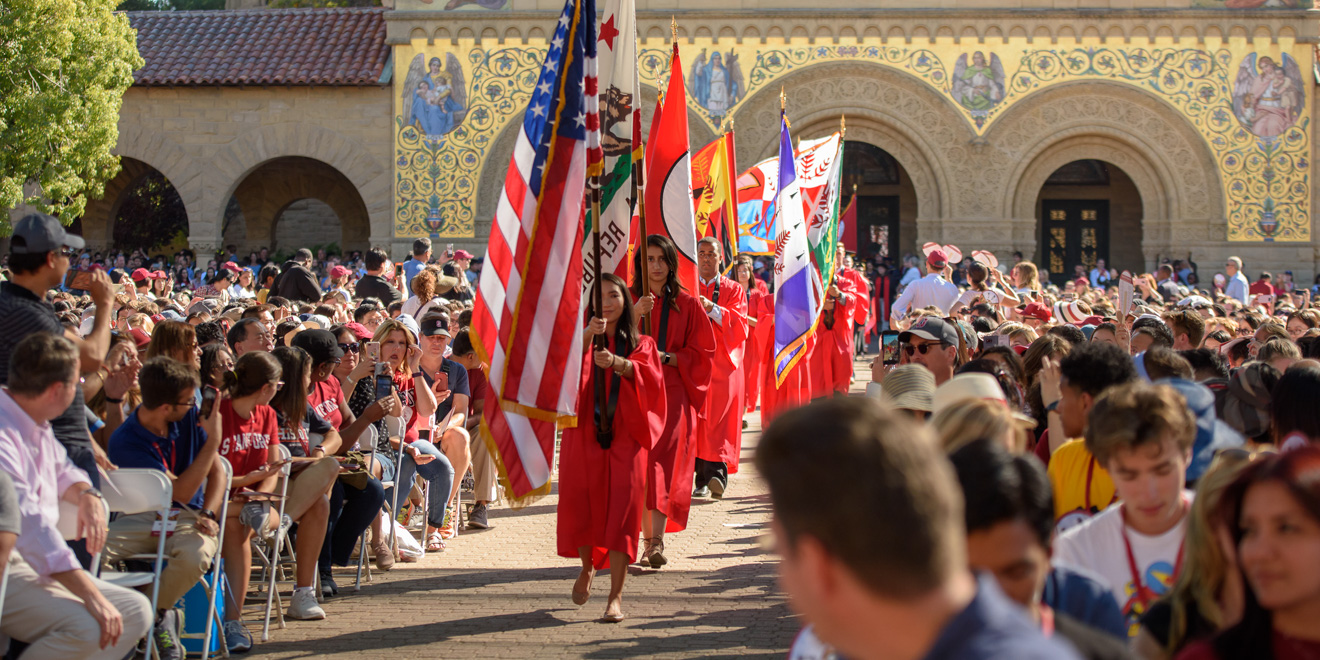Despite being shortened from six days to four, this year’s New Student Orientation (NSO) preserved traditional frosh programming, such as the Three Books seminar, Beyond Sex Ed and Faces of Community.
The changes hinged on the timing of the Jewish High Holiday Yom Kippur, which took place on Sept. 18 and 19. This year’s NSO began on Sept. 20.
“Moving the start date for NSO was critical,” wrote Assistant Dean of New and Continuing Student Programs Edith Wu-Nguyen in an email to The Daily. “We could not have been the inclusive community that we say we are if we held the first day of NSO on Yom Kippur, as some of our students would have been in services and unable to participate in important events.”
As a result of the compressed timeframe, some all-class programs were not offered this year, including “The Real World: Stanford,” a series of light-hearted performances relating to alcohol, health and consent.
“In setting the NSO 2018 schedule, we worked closely with Vaden staff to plan how to convey important information in the Real World to new students: via summer newsletters, required online courses: AlcoholEdu and Sexual Assault Prevention (2 hours each), and PHE-led programs in each dorm,” Wu-Nguyen wrote.
All-class programs still offered this year included a joint Discover Stanford and Three Books event, a discussion with the authors of the three books given to all incoming Stanford freshmen; Beyond Sex Ed, a program about sexuality and consent developed in coordination with Stanford’s Sexual Assault and Relationship Abuse Office (SARA); and Faces of Community, an event in which upperclassmen shared their unique challenges and opportunities navigating life at Stanford.
Multiple frosh named Faces as one of their favorite NSO events.
“Faces made me excited to be here because it showed the diversity of the Stanford community,” said Kayla Uytengsu ’22.
After the program concluded, students returned to their dorms to continue the discussion.
“The discussion that came out of [FACES] was like, a whole new world,” said Emma Master ’19, a residential assistant at Alondra. “It was people sharing their own experiences, being vulnerable. It got to a whole new level where I felt like I could understand [the frosh], really see them for the first time.”
Overall, the shortened NSO timeline was met with mixed reviews.
“I would want to spread it out longer — it was hard to go to some events because they were so clustered together,” said Michael Wood ’22. “Still, I feel like I got all the information I needed.”
Other students mentioned a desire for more unstructured time to facilitate dorm bonding, despite the fact that this year’s NSO already included more free time than in previous years.
An annual feedback form is sent out after every NSO. According to Wu-Nguyen, the feedback frosh provide is critical in planning next year’s orientation.
“Many of the changes we make and priorities we set are the result of these student comments,” Wu-Nguyen said.
When reflecting on the NSO experience, orientation coordinator Jared Hysinger ’21 said he believes the shortened timeline still allowed frosh to find their place on campus.
“I feel that new students always feel slightly overwhelmed when they come to Stanford,” Hysinger said. “The transition to college is one of the major milestones of their young adult lives and no matter what, that transition period is going to feel very quick, exhilarating, and at the same time exhausting.”
Contact Erin Woo at erinkwoo ‘at’ stanford.edu and Aparna Verma at averma2 ‘at’ stanford.edu.
